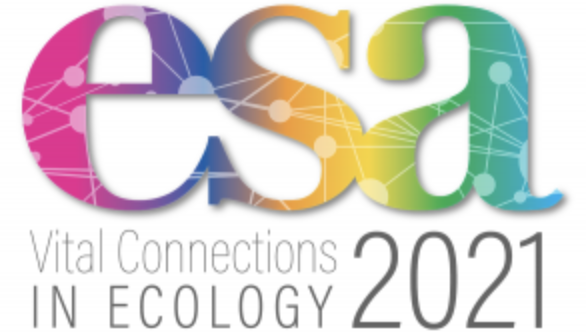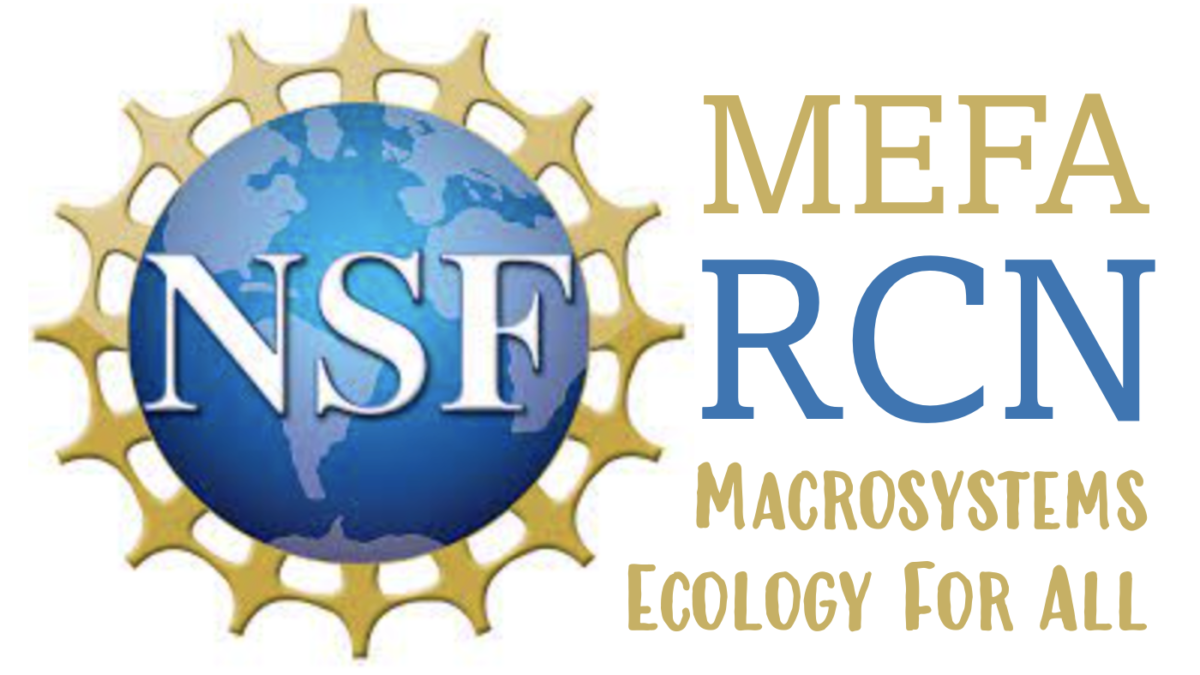
EREN-related Events, Posters, and Talks at ESA 2021
July 25, 2021Is Survey123 on your radar? {Research & Teaching Resource}
January 26, 2023An exciting new EREN initiative will launch on September 1, 2022: The Macrosystems Ecology for All (MEFA) Research Coordination Network (RCN).
Funded by the National Science Foundation (DEB 2213541), the MEFA RCN is a five-year project to support faculty teams as they create collaborative ecological research projects that link macrosystems ecology concepts, large environmental datasets, and DEIJ principles. MEFA projects will also be designed to include undergraduate students in data collection and/or analysis so they can learn ecology through authentic research experiences.
Stay tuned for details on how to get involved!
NSF Abstract for Proposal DEB-2213541 titled “RCN: The Macrosystems Ecology For All (MEFA) Research Coordination Network”
The environmental challenges facing the world today can be global in scale, like climate change, or regional in scale, like drought. These large-scale problems interact with local ecosystems: climate change may cause a drought that dries local vegetation and increases fire risk in single sites. Human land use patterns may allow fire in one site to spread quickly to other sites, leading to regional fire hazards. This example illustrates how understanding connections among ecological phenomena across scales allows us to make predictions about fire danger. Macrosystems ecology is an emerging scientific field that explores links among geophysical, biological, and social-cultural processes at different scales. This work is informed by analysis of large environmental datasets. However, not all ecology faculty, particularly those from teaching-oriented institutions, feel comfortable with macrosystems ecology concepts and techniques. A 2021 survey of the award titles from the National Science Foundation website for the Macrosystems and NEON-Enabled Science Program showed that of 184 awards listed, only 8 were given to primarily undergraduate institutions. This suggests there is a large pool of talented ecology faculty who could engage with macrosystems ecology but are not doing so. The Macrosystems Ecology For All (MEFA) Research Coordination Network (RCN) will provide a gateway for faculty to learn more about macrosystems concepts, update their data science skills, design inclusive research projects that resonate with their scientific interests, and foster hands-on macrosystems ecology research with undergraduates. Collaboration across institutions will be emphasized to build camaraderie, share expertise, and address large-scale ecological questions with efficiency. Having more researchers from diverse personal and institutional backgrounds engaging with macrosystems ecology will bring fresh perspectives and innovation to this important scientific field. Through the faculty training provided by MEFA, more undergraduate students from different communities will be exposed to emerging data science and macrosystems concepts. By providing faculty development in a supportive framework, MEFA will enhance the skills of its faculty participants and enable them to build a diverse and inclusive scientific workforce prepared to engage with the extraordinary environmental challenges of the 21st century.
The MEFA RCN will sponsor five in-person meetings and a series of online workshops that provide training in data science techniques, highlight examples of macrosystems research, and support the development of collaborative, multi-site projects that engage undergraduates in macrosystems ecology research. MEFA will partner with other networks including the BEDE (Biological and Environmental Data Education) Network, Project EDDIE (Environmental Data-Driven Inquiry and Exploration), and NEON (National Ecological Observatory Network) in developing these training activities. MEFA will have a strong emphasis on promoting diversity, equity, inclusion, and justice (DEIJ), providing training on diversity issues in a collaborative science context and requiring that all research projects have a DEIJ plan. MEFA will recruit faculty from minority-serving institutions and provide special support for faculty from underrepresented groups serving in project leadership roles within the network. MEFA will be governed by a Network Management Team who will facilitate the daily workings of MEFA and a Network Advisory Team who will provide macrosystems ecology expertise, DEIJ advice, and guidance on vision and organizational priorities. Assessment of MEFA’s progress toward its goals will be provided by Measurement Resources Company (MRC), a national measurement and evaluation firm.


